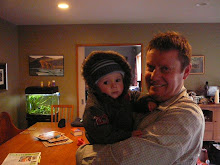Given the the PCANZ in it's General Assembly is not unlike a rest home in some respects Bruce Hamill of Dunedin offers us one of his rest home 'sermons' as preparation...
Living in Close Vicinity: a sermon on hospitality and judgement for a rest home
Welcome those who are weak in faith, but not for the purpose of quarreling over opinions. Who are you to pass judgment on servants of another? It is before their own Lord that they stand or fall. And they will be upheld, for the Lord is able to make them stand.
Romans 14: 1, 4
I know you folk live fairly close together here. You see quite a bit of each other right? Do you ever judge other people? Do you ever find yourself writing another person off… putting up a barrier between you and another person?
The bible says to us ‘do not judge’. It’s quite a difficult thing isn’t. Deep in our human nature is this desire to be critical of others who don’t quite measure up. Actually we feel better about ourselves if we can distance ourselves from others faults… That’s kind of sad
Today’s text says that the opposite of ‘standing in judgement’ on the other person is welcoming that person, even if they are weak in faith, even if their faults seem enormous to us… welcome them
The other person is not accountable to me or to you… they are accountable to God. When you think about it we know so little about what is going on in another person’s head and life, what has lead them to their current situation. But it’s so easy to judge anyway… isn’t it?
Let me tell you a story, it’s a kind of parable about heaven and hell, written by a man called C S Lewis (Narnia fame).
The story begins in a gray and rainy place (not Dunedin funnily enough) at what seems to be dusk, time seems to have paused at the dismal moment when only a few shops have lit up and it is not yet dark enough for the windows to look cheering. The main character finds himself at a bus stop somewhere in this grey city, he calls it twilight city… and the first thing he notices is that there are hardly any people. He gets on the bus and enters into a conversation with another passenger and begins to learn about the city and its constant expansion. The reason it is so grey is that the houses are so far apart. And the reason that is so lies in the fact that this is a place of wish fulfillment. Whatever you want you just have to think about it and it happens. Sounds like heaven… but in fact it’s a kind of hell.
Here’s how the passenger in the bus describes the situation:
As soon as anyone arrives he settles in some street. Before he’s been there twenty-four hours he quarrels with his neighbour. Before the week is over he’s quarreled so badly that he decides to move. Very likely he finds the next street empty, because all the people there have quarreled with their neighbours – and moved…
C. S. Lewis, The Great Divorce (Macmillan 1946), pp. 8-9
So everyone moves further and further apart. This city is the opposite of hospitality. Essentially the people keep getting in each other’s road. They judge each other. And they end up on their own, with only their own company. And perhaps the fact that they can’t stand their own company makes it even harder to put up with others near them… They end up hating themselves and their neighbors. Perhaps it really would be hell having everything you wanted just by wishing it?
What our traveller on the bus eventually learns is that somewhere in this city is a bus stop. Once a week a bus leaves this place taking anyone who wants to heaven (real heaven, not just wish-fulfillment heaven). The problem is most people can’t stand long enough in the queue next to other people.
To cut a long story short the traveler catches this bus which flies to a brighter and brighter place, the further into it they get the more the passengers are revealed to be in a kind of ghost like condition. They land on a grassy plain under a penetrating blue sky. This is the beginning of heaven. Apart from the penetrating brightness the first thing the passengers discover is the hospitality, the welcome they receive… it’s so different from the other place.
But the welcome is not a comfortable thing, it is painful because entering into personal relations means also receiving the truth about themselves – it’s not easy. At first the hospitality of heaven seems almost unhospitable. The light is exposes the true nature of the travelers in all their blotches and sneers. The grass is so solid that it is hard for the ghostlike travelers to walk on… They need to be forgiven to live in this hospitality. To receive heaven’s hospitality means receiving heaven’s truth too.
I’m not sure what happens in the end to our travelers. But the story gets you thinking doesn’t it. What does it take to be hospitable and to enter into God’s hospitality … I imagine living as closely together as you folk do makes you think about that too. Can we receive God’s hospitality and be hospitable to those around us. Can we receive God’s truth about ourselves and be truthful with those around us? The two questions cannot be separated.
Tuesday, September 9, 2008
Subscribe to:
Post Comments (Atom)

No comments:
Post a Comment